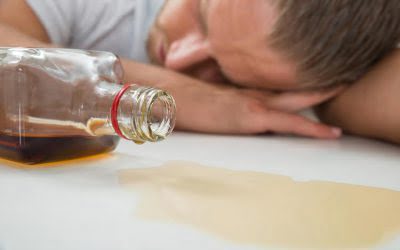Alcohol poisoning is extremely dangerous and could require emergency medical attention. Because denial is common, you may feel like you don’t have a problem with drinking. You might not recognize how much you drink or how many problems in your life are related to alcohol use. Listen to relatives, friends or co-workers when they ask you to examine your drinking habits or to seek help.
A healthcare provider may also suggest that individuals seek treatment for alcohol use or talk to a mental health professional. An individual may want to seek treatment for alcohol use or another mental health condition such as depression or anxiety. Consuming too much alcohol too quickly can lead to alcohol poisoning, which is marked by symptoms such as poor coordination, hypothermia, irregular heartbeat, slowed breathing, and unconsciousness. If you experience an alcohol overdose, your outlook will depend on how severe your overdose is and how quickly you seek treatment. If you combine alcohol and drugs, you may not feel the effects of the alcohol. This may cause you to drink more, increasing your risk for an alcohol overdose.
Is Passing Out a Sign of Alcohol Overdose?
In fact, doing these things can put an intoxicated person at greater risk of injury and death. Alcohol intoxication occurs from drinking too much alcohol in a short period of time. Any of these symptoms are signs that immediate medical attention is necessary.
- Alcohol poisoning occurs when large quantities of alcohol are ingested in a short period of time (binge drinking).
- This can increase an individual’s risk of being injured from falls or car crashes, experiencing acts of violence, and engaging in unprotected or unintended sex.
- You might not recognize how much you drink or how many problems in your life are related to alcohol use.
- In severe cases of CO poisoning, hyperbaric oxygen therapy (HBOT) may be used.
- Despite the relatively long detection times of these tests, drinking one drink will have a significant intoxicating effect on the brain for that long.
The person can become extremely confused, unresponsive, disoriented, have shallow breathing, and can even pass out or go into a coma. Because of alcohol-induced impairment, it is often assumed that someone who is intoxicated would accept help if able to do so. In some situations, a medical team may order imaging studies such as a https://ecosoberhouse.com/ brain computerized tomography (CT) scan to see if there is head trauma or bleeding. Blood pressure, breathing rate, pupil size, and responsiveness are all considered in the assessment. Alcohol poisoning can make a person black out, causing loss of consciousness and often an inability to remember many of the events that occurred.
What causes alcohol poisoning?
Ingesting alcohol and other drugs together intensifies their individual effects and could produce an overdose with even moderate amounts of alcohol. After an episode of alcohol poisoning, rest and hydration are warning signs of alcohol poisoning key. Avoid alcohol in the following days and consider a health check-up. This is also an opportune time to reflect on drinking habits and possibly seek advice or support if you think you are drinking too much.
- If the alcohol poisoning is extreme, the patient can go into a coma and potentially die.
- In addition to the serious risk of death, alcohol poisoning can also lead to irreversible brain damage.
- Keep reading to learn more about alcohol intoxication, including its causes, symptoms, and treatments.
- People cannot treat severe alcohol intoxication — or alcohol poisoning — at home.
However unpleasant, most hangovers go away on their own, though they can last up to 24 hours. If you choose to drink alcohol, doing so responsibly can help you avoid future hangovers. When CO enters your bloodstream, it binds with greater affinity to hemoglobin (the protein in red blood cells that transports oxygen throughout the body) than oxygen. This prevents oxygen from getting to tissues and cells, which can lead to serious tissue damage, even death. Rapid fluid ingestion alters the fluid concentration in the body, potentially disrupting fluid and electrolyte balance.
Other health conditions
Age, sensitivity to alcohol (tolerance), gender, speed of drinking, medications you are taking, and amount of food eaten can all be factors. Celebrating at parties, cheering a favorite sports team, and enjoying get-togethers after work are common ways to relax or be with friends. For some people, these occasions may also include drinking—even binge or high-intensity drinking. American Addiction Centers (AAC) offers state-of-the-art rehab facilities for treating AUDs and is a leading provider of alcohol detox and treatment across the nation.



 ?
?